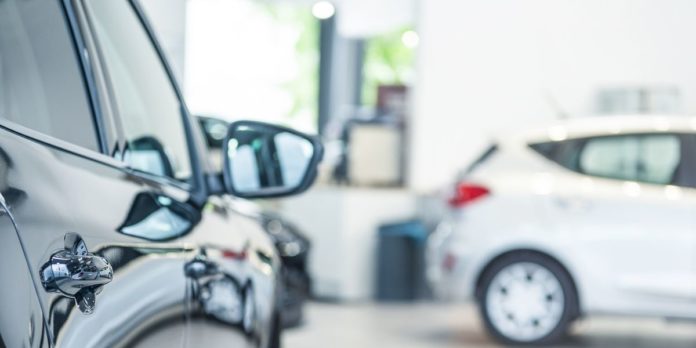- More and more borrowers—well, would-be borrowers—are being declined as they shop for a new car.
- The Federal Reserve found the overall rejection rate for auto loans was 14.2 percent in June, the highest level since the Fed started collecting this kind of data in 2013.
- Lenders are getting pickier about whom they give money to for many reasons, including inflation and a recent increase in delinquencies and defaults.
The supply of new cars, trucks, and SUVs on dealer lots isn’t as sparse as it was a few years ago, but there’s an important sign in the consumer data that shows vehicle shopping in the U.S. isn’t as easy as it could be. The culprit? Credit problems.
The Federal Reserve tracks loan application data, including how often lenders turn borrowers down. The Fed recently released a new batch of information that found that the overall rejection rate for loan applications was 21.8 percent. It’s bad—but not quite as bad—for auto loans, which hit 14.2 percent in June, up from 9.1 percent in February. That 5 percent jump puts auto loan rejection rates at their highest level since the Fed started collecting this data in 2013.
Loans of All Types Are Looking Bad
Would-be-borrowers saw their applications for other loan types rejected at an increased rate, too: 21.5 percent of credit card applications were rejected, for example, along with 30.7 percent of credit card limit increase requests, 13.2 percent of mortgages, and 20.8 percent of mortgage refinance applications. The Fed said that the overall rejection rate for all credit applicants was almost 22 percent in June, the highest level in five years. The Fed said all age groups saw an increase in rejections, but the highest rejection rates were among people with sub-680 credit scores.
The reasons for the increased rejections can be found in the broader economy, especially the inflation of the last few years and the fact that rising interest rates have increased the amount of debt people have. Lenders are worried about borrowers being unable to pay, with good reason. Analysts at Cox Automotive noted last month that “auto loan performance resumed deteriorating in May as delinquencies and defaults both increased for the first time in three months.”
Delinquency Rate Worst in Almost 20 Years
The May severe delinquency rate for auto loans—1.7 percent, while the subprime car loan rate hit 6.5 percent—was the worst since 2006, Cox said, and the default was almost back to the highs of 2019.
It may take a while before things get better. The Fed’s recent numbers say that the average reported probability that an applicant will be rejected for an auto loan in the next twelve months is almost 31 percent. That’s the highest level since October 2014, when the expected rejection rate hit just over 28 percent. Expected auto loan rejections are in line with other loan types the Fed thinks will also be regularly rejected in the next year: credit card applications ( 32.8 percent), credit limit increase requests (42.4 percent), mortgages (46.1 percent), and mortgage refinance applications (29.6 percent).
This content is imported from poll. You may be able to find the same content in another format, or you may be able to find more information, at their web site.
Contributing Editor
Sebastian Blanco has been writing about electric vehicles, hybrids, and hydrogen cars since 2006. His articles and car reviews have appeared in the New York Times, Automotive News, Reuters, SAE, Autoblog, InsideEVs, Trucks.com, Car Talk, and other outlets. His first green-car media event was the launch of the Tesla Roadster, and since then he has been tracking the shift away from gasoline-powered vehicles and discovering the new technology’s importance not just for the auto industry, but for the world as a whole. Throw in the recent shift to autonomous vehicles, and there are more interesting changes happening now than most people can wrap their heads around. You can find him on Twitter or, on good days, behind the wheel of a new EV.

